Here's a case of how to definitely not deal with getting negative feedback. A developer of Depth of Extinction revoked a user's key after a negative review. Update: A statement from the developer.
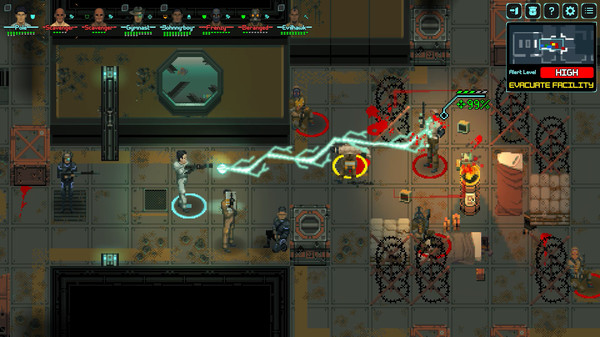
Depth of Extinction is a game that went through itch's "First Access" program where they sold limited amounts of keys across various rounds. Like a lot of games that start off on itch.io, the developer promised a Steam key when the game makes into onto Valve's store. So to make matters worse, this was a user who helped fund them a little before the wider release.
You can see the Steam forum post here where the user talks about it, which is now locked by the developer which was made after they put up this user review on Steam. Looking at the short review, they're not even saying all that much and it sounds like a pretty honest post as well as remaining quite polite with their negative thoughts about it.
The reply the developer sent to the user, is a great example of how to not respond to players of your game who dislike certain aspects of it:
Sorry about that, but I thought I you weren't interested in playing the game. I would have loved to get your feedback during the First Access but I didn't see anything from you until the Steam review, which was a little confusing. I really don't see how you saw enough of the current version of the game to make the judgement call you did there since we made massive changes in the last few months that were all just on Steam.
I can get you another key if you are interested in playing more and perhaps providing some feedback on how we can improve the game.
As polite as the developer reply may seem, how could they have thought this would be a good idea? They did also apologise in a later post after. Since I actually quite like the game, it also stings a bit to see a developer I also supported do something like this. Thankfully, the situation is now resolved and the user does have access to it on Steam once again. Honestly though, I'm a little in shock that doing something like this would ever cross someone's mind.
I've given plenty of negative reviews in my time here and on Steam itself, I've later changed my mind on it especially in times when there's been a patch to improve things and this user could have done the same but that's not the point. This feels like an attempt to silence negative feedback to me, it doesn't sit right at all.
It does also bring up some interesting questions about how easy it is for developers to remove peoples access to their games. While it's a system that can help developers in certain situations, it's also a system that is quite obviously open to a bit of abuse. I do have to wonder what Valve think about this as well, so I've reached out to them for a comment and I will update this if they reply.
This does make another interesting case for DRM free games outside of Steam, since a developer can't just take away your ability to play it. While a DRM free store could remove the game from you, you're still able to fully back it up yourself.
Hat tip to madpinger for the info.
I rarely make a big deal out of Steam's DRM and in this case it wasn't specifically about Steam's DRM. It was mentioned, sure, but only because this happened on Steam. The main point is that it's a reminder on how stuff can be taken away.I understand the point but at the same time I think people make a bigger deal out of Steam's DRM than it actually is. Hell depending on the game there are even extremely trivial ways around it.Liam you mention DRM free games as if they don't exist on steam. People seem to misunderstand. Just because a game is on steam doesn't mean it's DRMed and it doesn't mean you can't back it up. Steam does provide OPTIONAL DRM that a Dev must deliberately choose to use. There are actually a good number of games in my steam library that are not DRMed at all. An easy way to test is to run the game manually and see if it sets your steam status to in game. Even some games that do that don't actually require steam to be present so the most accurate way of testing would be to close steam and then try to run the game.Sure, but plenty of Steam games have some form of Steam integration. I'm sure you understood my wider point.
The person who did this probably had a bad day, was very fed up already and read this review and took it personally or something, which lead to them over-reacting. It happens to everybody once in a while.
Sure that's wrong, but he did apologize and fix things anyway.
Last edited by thykr on 20 Oct 2018 at 7:00 pm UTC
Alright, fair enough.I rarely make a big deal out of Steam's DRM and in this case it wasn't specifically about Steam's DRM. It was mentioned, sure, but only because this happened on Steam. The main point is that it's a reminder on how stuff can be taken away.I understand the point but at the same time I think people make a bigger deal out of Steam's DRM than it actually is. Hell depending on the game there are even extremely trivial ways around it.Liam you mention DRM free games as if they don't exist on steam. People seem to misunderstand. Just because a game is on steam doesn't mean it's DRMed and it doesn't mean you can't back it up. Steam does provide OPTIONAL DRM that a Dev must deliberately choose to use. There are actually a good number of games in my steam library that are not DRMed at all. An easy way to test is to run the game manually and see if it sets your steam status to in game. Even some games that do that don't actually require steam to be present so the most accurate way of testing would be to close steam and then try to run the game.Sure, but plenty of Steam games have some form of Steam integration. I'm sure you understood my wider point.
> This does make another interesting case for DRM free games outside of Steam, since a developer can't just take away your ability to play it. While a DRM free store could remove the game from you, you're still able to fully back it up yourself.
Subtle.
A drm free store took all my games away. GOG. I did a creditcard chargeback on the virtual goods I purchased. GOG closed my account.
A drm free store took all my games away. GOG. I did a creditcard chargeback on the virtual goods I purchased. GOG closed my account.
That sucks. However, I think the point is that if you had the games downloaded, you'd still 'own' them.
Out of curiosity, why did you do the chargeback?
It should not even be possible for a dev to revoke keys. Revoking a legally paid key is theft. There's just no other way to look at it.companies do it all the time if a player does something like say cheating in a game. I quite agree with you though.
I don't recall seeing that. They take away access to an online service, but they don't invalidate your key.
[…]Let's quickly wrap up this off-topic discussion: The GPLv2/v3 are in conformance with the law in the EU & the USA. They have undergone legal scrutiny in courts ([GPL Enforcement Cases](https://wiki.fsfe.org/Migrated/GPL%20Enforcement%20Cases)) and the rights can also be revoked (e.g. Busybox vs Best Buy + 13 other companies (2009-2012)).
Wow, arrogance overload! But, you're wrong and your own link proves what I said.
The cases shown on that page demonstrate that non-licensed distribution is protected against, which I said is the case in my long post:
An Intellectual Property is an intangible property, and so is a license granted to make use of an IP via a non-reproduceable instance (such as software) of it - but they are distinct intangible properties. While a publisher hands out the right to use their IP when it grants a license, they don't hand away the IP itself and so the right to reproduce copies of their IP for distribution remains with the IP holder.
So, the GPLv3 wording sounds valid when it says "Any attempt otherwise to propagate... it is void".
However, the only case I see that regards modifying GPL-licensed software is the Welte in AVM vs Cybits case, and that case ended with the court ruling that, contrary to the GPL licenser's claim, the defendant was in-fact entitled to modify the GPL software and people were entitled to use the software after it had been modified:
What was the result: The Court firstly closed the preliminary case, confirming the position of Mr Welte as long as the modified software doesn't return incorrect values. In its next decision on November 8th in the principal proceedings, the Court denied that Cybits had infringed AVM's copyright: Cybit had the right to download the GPL parts of the AVM firmware in order to modify them.
So, it looks as though things are precisely as I previously said I thought they would be:
... However, the claim of "Any attempt otherwise to... modify it is void" doesn't sound like it is true, to me. And, I wonder how the part that says "... and will automatically terminate your rights under this License" regarding a modified personal instance could be enforced. I don't think it could be.
...
The GPLv3 wording seems redundant and unrefined to me and, like any claim, is ignorable to the extent that it is invalid before law. And, I think that the parts beyond claiming that people may not distribute duplicates of the digital item are fluff.
Last edited by Delicieuxz on 21 Oct 2018 at 2:09 am UTC
Even Gabe Newell knows that DRM is a bad thing, it doesn't add anything positive. Hope one day steam makes the move of being DRM free. But let's face it DRM is still there because devs and specially companies are control freak outs, publishers and devs won't be happy if steam removes DRM.
I call bulldust on that, because not one of Valve Software's games is DRM-free, which Steam technically (though optionally) supports, as some people often point out on this site whenever the DRM argument comes up...
EDIT: I believe most of this was sorted out with the DRM systems in place for home medias (DVDs and BluRays); ie. you bought the thing, you have the right to modify it to make sure you can actually use it.
To this day, fuck the Bluray Consortium. Its their own friggin fault Kodi w/ shady plugins is such a big thing now.
Yep.
Thankfully, it's not that difficult to get around the DRM of a Blu-Ray Disc and it's only a matter of time until the DRM of 4K Ultra HD Blu-Ray Discs is broken, too... Already specific 4K Ultra HD Blu-Ray Discs have had their DRM broken.
> This does make another interesting case for DRM free games outside of Steam, since a developer can't just take away your ability to play it. While a DRM free store could remove the game from you, you're still able to fully back it up yourself.
Subtle.
A drm free store took all my games away. GOG. I did a creditcard chargeback on the virtual goods I purchased. GOG closed my account.
There's two important take away points from this though:
1. You've cancelled a transaction after receiving the goods, without returning the goods; there might be more to the story, but based on what you have told us, you should be doing the digital equivalent of "returning the goods" and deleting any copies of the game you have;
2. There was nothing to stop you backing-up the game offline, so that you could still play the game should such a thing like this occur...
Anyway with regards to the article, this should not be an option for developers as many have pointed out... Sure, there are certain niche user cases where this might be justified (e.g. stolen credit cards), but Valve Software should change their policies and only allow themselves to do such a thing or put tighter controls on a developer's ability to revoke keys (e.g. all revoked keys are subject to review by Valve Software and/or only beta/testing/etc keys can be revoked, not "full" keys).
I should point out one rather important fact though (and one that applies to most digital stores) - my understanding is that via Steam, you are only buying the right to play the game, not the actual game itself... Therefore according to their terms, you technically don't "own" the game.
I personally don't agree with that stance, which is why I prefer to buy my games DRM-free and when I reluctantly buy something protected by DRM (comics, Blu-Ray Discs, eBooks, CDs), I immediately strip the DRM from it (if I cannot remove the DRM, I usually skip that purchase, and move onto something else)... But the point remains - most digital stores technically license the right to use the game to you, not ownership of the game itself.
Last edited by Cyba.Cowboy on 21 Oct 2018 at 1:04 am UTC
My favourite principle of common law is Cuius est solum, eius est usque ad coelum et ad inferos which translates to "whoever's is the soil, it is theirs all the way to Heaven and all the way to Hell"I'm pretty sure the principle refers to the land owner's rights to the air above and the ground below their plot. I like your dramatic interpretation though. :)
bluntly putting it: If you f**ck with land property we will drink your blood and take your soul.
Last edited by tuubi on 21 Oct 2018 at 7:46 am UTC
However, the only case I see that regards modifying GPL-licensed software is the Welte in AVM vs Cybits case, and that case ended with the court ruling that, contrary to the GPL licenser's claim, the defendant was in-fact entitled to modify the GPL software and people were entitled to use the software after it had been modified.The GPLv2 licenser (Welte) did argue in favor of the defendant and the ruling was in favor of the GPLv2. AVM was trying to deny the right to modify GPLv2 software (which would be a GPL violation). So I really don't see your point and it definitely does not argue against anything I said (GPLv2[/v3] are legally solid and the license can be terminated after a violation).
Longer version: [Summary of the case so far](https://fsfe.org/activities/ftf/avm-gpl-violation.en.html)
And it is not true, that this is the only case about modifying GPLv2 code. As I said, Busybox vs Best Buy + 13 other companies (2009-2012) was about
[…]So no, it has nothing to do with arrogance, I simply try to state facts. And facts are that the GPLv2/v3 are legally solid and their clauses were confirmed in courts (GPLv3 not so much, yet, but there are cases, too).
embedded in electronic products or by itself – that contains BusyBox or a derivative work of BusyBox
[…]
What was the result: Westhinghouse Digital Electronics, LLC filed for an alternative procedure to bankrupcy allowed under California law [6], thus exiting the main lawsuit. U.S.D.J. Scheindlin found «Westinghouse’s infringement to be willful and therefore awarded treble statutory damages of $90,000. The court also entered a permanent injunction prohibiting distribution of HDTV products with the BusyBox software and further ordered all infringing HDTVs to be forfeited to the plaintiff» [4]. All other companies reached an out of court settlement [7].[quote] Again in favor of the GPLv2 and the court even prohibits the distribution of a product containing the GPLv2 code after its violation.
What a crappy baiter news/article is that? Yeah lets slip in standards ...
Your constructive criticism has bee... oh, wait.
You have to keep in mind that the developers are human beings too.
The person who did this probably had a bad day, was very fed up already and read this review and took it personally or something, which lead to them over-reacting. It happens to everybody once in a while.
It doesn't help that game devs are basically expected to interact with reviews, especially if they're going the early access route.
This is completely different from, say, the writing community. There, "don't read reviews" is a common mantra, and if you do read a review, don't respond to it. There's a few examples where writers did respond to user reviews badly (Anne Rice is an often quoted example), and it never reflected well on them.
Writing a helpful review is a skill like any other, any most people are not particularily good at it. Now imagine wading through lots of lots of user reviews, most of them not really all that useful to you to improve on your craft, most of them contradicting each other, some laced with insults against the work you've spent considerable time on.
Sure, lashing out doesn't help either, and it's a crappy thing to do, but it is, in parts, understandable that it might happen.
What a crappy baiter news/article is that? Yeah lets slip in standards ...Thanks for the feedback, what is wrong with it exactly?
I have a proper statement from the developer. I am waiting for full confirmation that I can post it.
Thank you, I guess that will put things into perspective. Currently the article is, from what I understand, factually and technically completely correct, but feels a little bit like "making it bigger than it actually is". Revering to DRM and Steam in that context in the last paragraph, while technically correct, seemed to emphasize that feeling after reading that article, at least for me.
Last edited by jens on 21 Oct 2018 at 9:44 am UTC
Thanks for the actual feedback. About the DRM bit, probably true but I sometimes feel the need for mention it.I have a proper statement from the developer. I am waiting for full confirmation that I can post it.
Thank you, I guess that will put things into perspective. Currently the article is, from what I understand, factually and technically completely correct, but feels a little bit like "making it bigger than it actually is". Revering to DRM and Steam in that context in the last paragraph, while technically correct, seemed to emphasize that feeling after reading that article, at least for me.
However, the only case I see that regards modifying GPL-licensed software is the Welte in AVM vs Cybits case, and that case ended with the court ruling that, contrary to the GPL licenser's claim, the defendant was in-fact entitled to modify the GPL software and people were entitled to use the software after it had been modified.The GPLv2 licenser (Welte) did argue in favor of the defendant and the ruling was in favor of the GPLv2. AVM was trying to deny the right to modify GPLv2 software (which would be a GPL violation). So I really don't see your point and it definitely does not argue against anything I said (GPLv2[/v3] are legally solid and the license can be terminated after a violation).
Longer version: [Summary of the case so far](https://fsfe.org/activities/ftf/avm-gpl-violation.en.html)
I clearly didn't read the whole case thoroughly, just the outcome. However, that means that there are no cases on the webpage you linked to that demonstrate a case about modifying GPL software.
And it is not true, that this is the only case about modifying GPLv2 code. As I said, Busybox vs Best Buy + 13 other companies (2009-2012) was about
[…]Again in favor of the GPLv2 and the court even prohibits the distribution of a product containing the GPLv2 code after its violation.
embedded in electronic products or by itself – that contains BusyBox or a derivative work of BusyBox
[…]
What was the result: Westhinghouse Digital Electronics, LLC filed for an alternative procedure to bankrupcy allowed under California law [6], thus exiting the main lawsuit. U.S.D.J. Scheindlin found «Westinghouse’s infringement to be willful and therefore awarded treble statutory damages of $90,000. The court also entered a permanent injunction prohibiting distribution of HDTV products with the BusyBox software and further ordered all infringing HDTVs to be forfeited to the plaintiff» [4]. All other companies reached an out of court settlement [7].
So no, it has nothing to do with arrogance, I simply try to state facts. And facts are that the GPLv2/v3 are legally solid and their clauses were confirmed in courts (GPLv3 not so much, yet, but there are cases, too).
This time, you haven't read the case thoroughly.
The Busybox vs Best Buy + 13 other companies case didn't involve an accusation of modifying GPL software, and "or a derivative work of BusyBox" is not what the GPL violation was.
The violation was having "distributed firmware... in a manner that does not comply with the License."
The GPL license was for "personal, non-commercial purposes only" while Best Buy and 13 other companies distributed the GPL firmware commercially.
The "or a derivative work of BusyBox" was only relevant in the case to establish whether GPL software was being used in a violating manner because of what I said, here:
"a distributed modified copy still counts as a distributed copy of the original work in copyright law."
And:
"The GPLv3 wording sounds to me like it's trying to prevent people from duplicating a licensed work and also from trying to get around that restriction by modifying it and distributing it then as their own work."
The court's decision in the case:
"The court also entered a permanent injunction prohibiting distribution of HDTV products with the BusyBox software and further ordered all infringing HDTVs to be forfeited to the plaintiff" (before an out-of-court settlement took place)...
... was because the companies were distributing GPL software as part of a commercial venture which violated the "personal, non-commercial purposes only" condition of the license. The court nor the case argued that there was a violation pertaining to modifying GPL software.
None of the cases on the webpage you've linked to show an example contradicting what you've taken issue with about what I said, which is:
"However, the claim of "Any attempt otherwise to... modify it is void" doesn't sound like it is true, to me. And, I wonder how the part that says "... and will automatically terminate your rights under this License" regarding a modified personal instance could be enforced. I don't think it could be."
Last edited by Delicieuxz on 21 Oct 2018 at 11:53 am UTC
The GPL license was for "personal, non-commercial purposes only" while Best Buy and 13 other companies distributed the GPL firmware commercially.The companies tried to add a clause that disallowed commercial use of GPL licensed software (BusyBox) they had modified and incorporated in their products. In effect they had added additional restrictions.
The purpose of the GPL is to protect your rights to use or modify the code as you see fit, and distribute it freely. But to ensure that the recipients of your modified code also retain these rights, you are not allowed to publish the code or binaries under terms that conflict with the license.
None of the court cases are about modifying personal instances of the software, because the license simply does not care. It also does not try to prevent you from selling products that either incorporate or entirely consist of GPL licensed software, as long as you freely provide your customers with the source code as well and do not try to restrict the rights granted them by the license.
GPLv3 does add some clauses that might be harder to enforce in more corporate-leaning jurisdictions like those in the US. I'm not sure if the explicit protection against actual laws that restrict writing and distribution of certain kinds of software would stand a chance against the DMCA over there. Which is kind of silly in a country where corporations themselves can effectively override the law with EULAs and Terms of Service. Not that the EU is much better in this regard, but at least the laws over here retain a shred of decency. For now.
[…]I can't say if you're a troll or just uninformed. If you're just uninformed, then some basic information:
[GNU General Public License 3](https://www.gnu.org/licenses/gpl-3.0)
[Copyleft and the GNU General Public License: A Comprehensive Tutorial and Guide](https://copyleft.org/guide/comprehensive-gpl-guide.html)
The official FAQ:
[Does the GPL allow me to sell copies of the program for money?](https://www.gnu.org/licenses/gpl-faq#DoesTheGPLAllowMoney)
[Does the GPL allow me to charge a fee for downloading the program from my distribution site?](https://www.gnu.org/licenses/gpl-faq#DoesTheGPLAllowDownloadFee)
[If I distribute GPL'd software for a fee, am I required to also make it available to the public without a charge?](https://www.gnu.org/licenses/gpl-faq#DoesTheGPLRequireAvailabilityToPublic)
I'm done with this discussion, have a nice day.
The text of the GPLv2(Which is the version Busybox uses) can be found here: https://www.gnu.org/licenses/gpl-2.0.txt
Neither of them prohibit commercial use and that is on purpose since doing so would violate the [Free Software Definition](https://www.gnu.org/philosophy/free-sw.en.html)(and incidentally the [open source definition](https://opensource.org/osd), the annotated version of which is available [here](https://opensource.org/osd-annotated)).
What these GPL lawsuits and settlements are typically about is [copyleft](https://www.gnu.org/licenses/copyleft.en.html) nature of the GPL. In other words the GPL prohibits people from taking the source code of a GPL work, creating a new product out of it, distributing the new product and then withholding the source code of it or releasing it under more restrictive terms.
[…]I can't say if you're a troll or just uninformed. If you're just uninformed, then some basic information:
[GNU General Public License 3](https://www.gnu.org/licenses/gpl-3.0)
[Copyleft and the GNU General Public License: A Comprehensive Tutorial and Guide](https://copyleft.org/guide/comprehensive-gpl-guide.html)
The official FAQ:
[Does the GPL allow me to sell copies of the program for money?](https://www.gnu.org/licenses/gpl-faq#DoesTheGPLAllowMoney)
[Does the GPL allow me to charge a fee for downloading the program from my distribution site?](https://www.gnu.org/licenses/gpl-faq#DoesTheGPLAllowDownloadFee)
[If I distribute GPL'd software for a fee, am I required to also make it available to the public without a charge?](https://www.gnu.org/licenses/gpl-faq#DoesTheGPLRequireAvailabilityToPublic)
I'm done with this discussion, have a nice day.
Well, I guess you have to be done with it, because you were wrong.
It looks like I misread the description of the BusyBox vs Best Buy case and attributed the “personal, non-commercial purposes only" claim to the plaintiff instead of the defendant, but a more thorough look at the case reveals that it still has nothing to do with what you claimed it to. The case didn't involve an accusation of modifying GPL software, but of not providing the source code according to the GPLv2 license: "SFLC/SFC, took the position that the failure to provide source code as required by GPLv2 (a) automatically terminated the licensees’ right to distribute GPLv2 code"
And no, I'm no expert on GPL, and didn't claim to be. You asked what the things I said in a previous post would mean for GPL licenses and I explained what I expect after giving the GPL terms you posted a cursory look. You took issue with my explanation, but have failed to provide a single example of how what I said doesn't hold up.
I misread and failed to read some information about cases you presented, but the correct reading of them doesn't say what you claimed they did (the case was not about modifying GPL software and passed no judgment on modifying GPL software), and doesn't contradict what I gave as my expectation in response to you asking how GPL licenses would work in light of my previous claims about invalid, ignorable, and non-enforceable license clauses.
What you're arguing for, that a license can be enforceably terminated for modifying a personal instance of a GPL software, is akin to claiming that Disney can sue or legally act against a person who draws a picture of Mickey Mouse in their home.
Let me know if you find an example of such a thing happening.
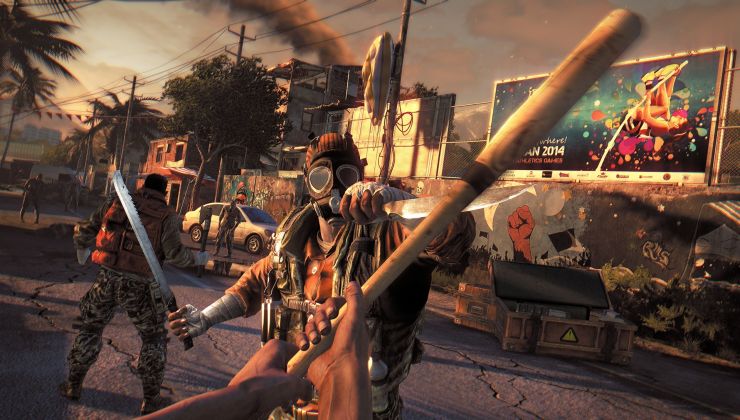
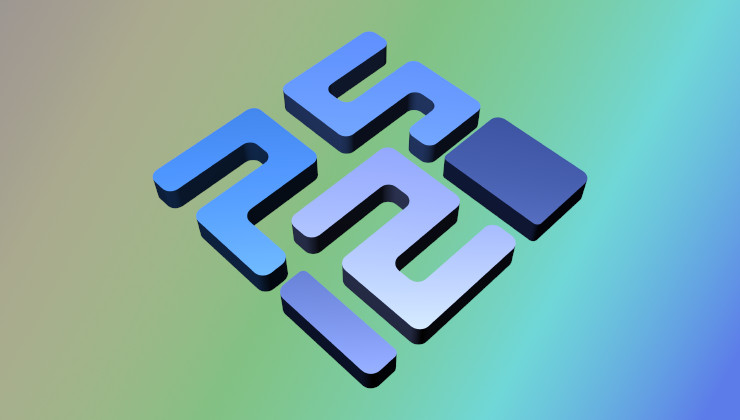
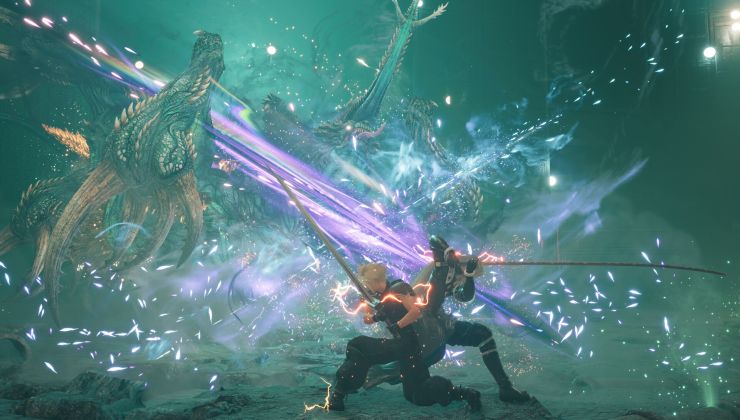
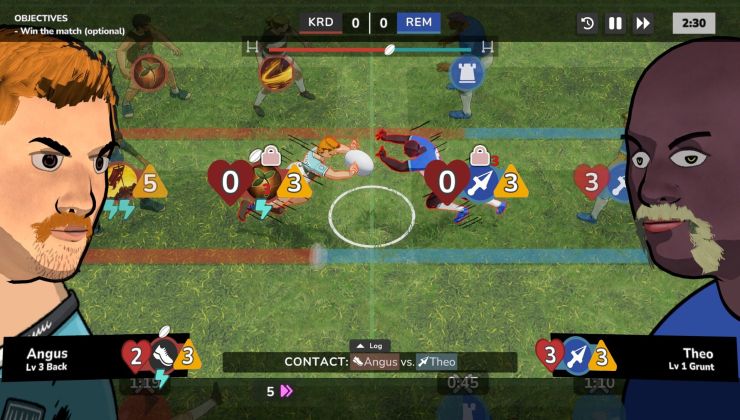








 How to set, change and reset your SteamOS / Steam Deck desktop sudo password
How to set, change and reset your SteamOS / Steam Deck desktop sudo password How to set up Decky Loader on Steam Deck / SteamOS for easy plugins
How to set up Decky Loader on Steam Deck / SteamOS for easy plugins
See more from me